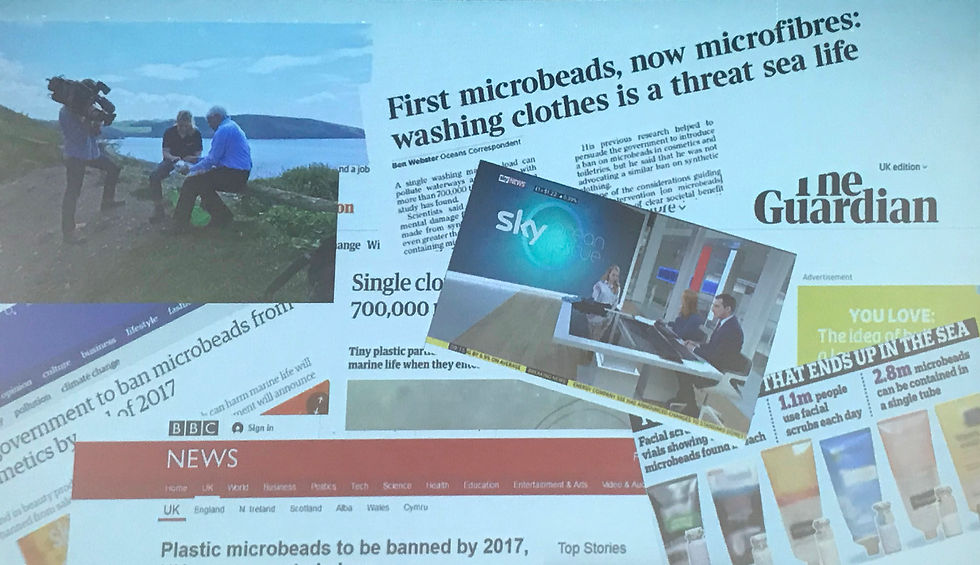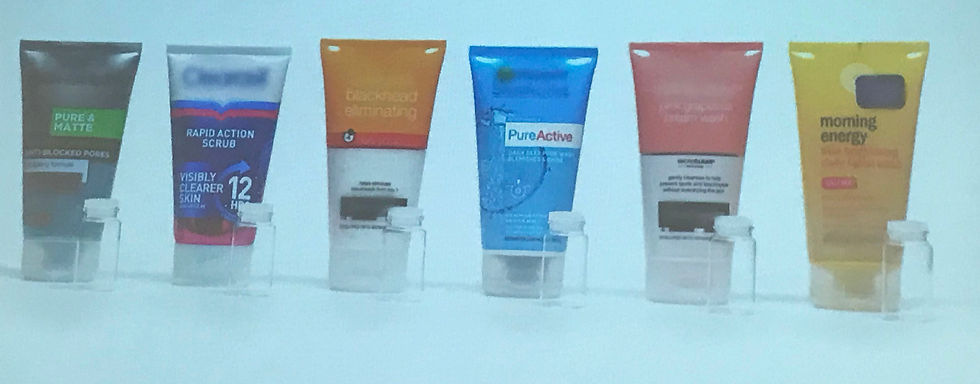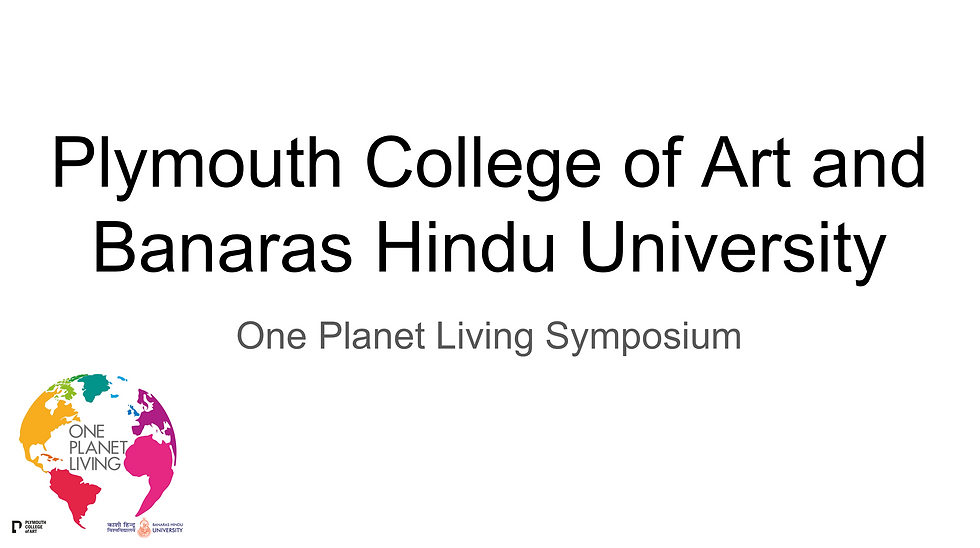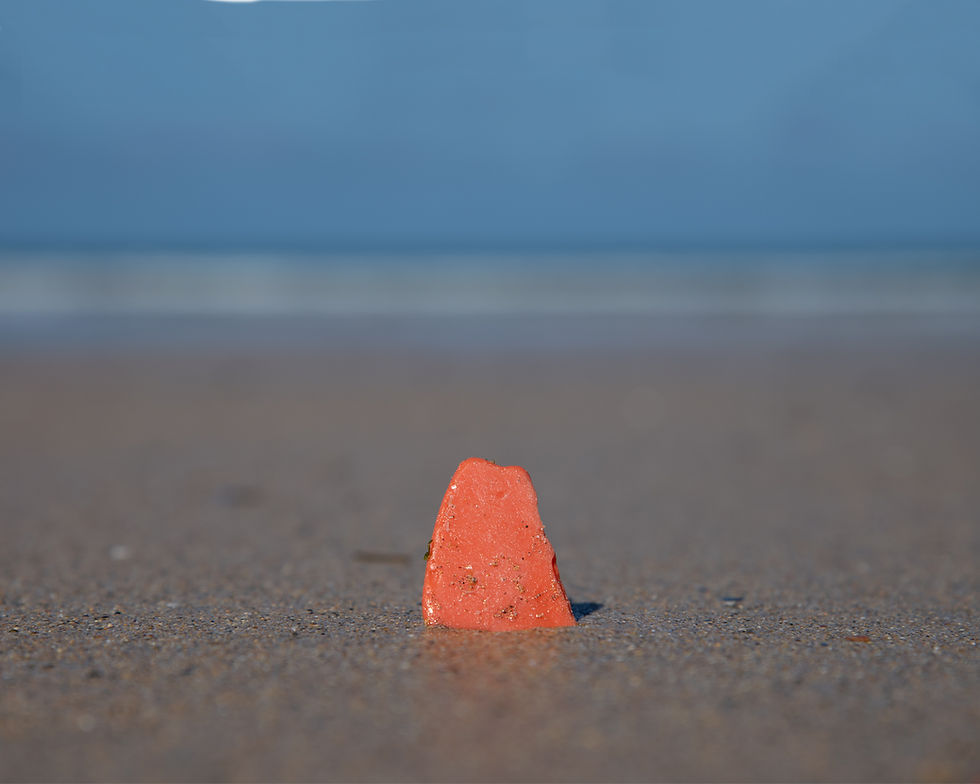Plastics Talk
- hannahcranshaw
- Mar 30, 2019
- 3 min read
Updated: May 15, 2019
On the 27th March we had lots of different plastic awareness events going on at PCA, one of them being a plastics talk. Dr Imogen Napper and Jackie from Environment Plymouth and the creator of plastic free Plymouth came to talk to us.
Plastic is carbon and hydrogen
When Napper was little she would draw in the sand, she doesn't ever remember rubbish on the beaches. Now when she goes back to the same beaches covered in rubbish. For children now this will be the norm.
Napper love to investigate the not so obvious.
One of the first things she looked into was micro beads in facial scrubs. You were basically washing your face with plastic with Polly ethylene. The ones to the left may look like they have a smaller amount of plastic but the beads are smaller so there could be more in there that slipped through the filter.

3mill in one bottle. There are so many other options that are way more eco friendly, look for products that have apricot husk, sand, sugar or salt in.

Her work got published in newspapers and magazines as people were so shocked. When she went back to look to see if they've changed anything and she was happily surprised to see that they've got rid of all the plastic.

Clothes are made out of plastic - when they are washed micro plastics can come off in the wash then go into the wash
In 6kg wash
Polyester-cotton blend - 137,000 fibres
Polyester - 496,000
Acrylic - 728,000
In the uk are waste management facilities are pretty good getting 95% of plastic out of the water but think about the countries that don't have the same systems.
Things to think about in the future to help make a difference:
Thinking ahead and being prepared.
Involving others (to spread this message)
Remain Flexible
What is your piece in the puzzle (Using your skillsets to help the problem)
Teach others (especially those that are younger than you as we are passing the baton down to them)
Inspire
Take owner ship of the problem, its our ocean
Industry can scare people into not publishing research as they have big scary lawyers.
Also they don’t want to name and shame certain brands as most of the time there is so many in the industry so its working with the brands so they can change for the better.
This talk was very eye opening to how many micro/nano are a problem. I already new that they were a big problem but I didn't quite realise how bad it was. I think this is something we should focus on in our shoots.
Jackie
Turtles have little spikes in their throat meaning once they eat plastic they cant regurgitate it back up.
1million plastic bottles are used a day
Her main aim is to focus on getting rid of single use plastic.
Fireworks - gold glitter fireworks that fizz and whistle - big plastic tube that controls that and ends up everywhere. They have worked with the August firework in Plymouth show to get them to not use plastic - that was already a rule but it got broken
She told us how there are Kayak oceans cleans, they can reach the inaccessible beaches.
Boston tea party spent millions on reusable cups across their 27 sights across the uk - you can buy a cup or even rent one.
She told us how she thinks there should be consistent waste collection so that everyone knows what they can do. We all recycle differently at home so might be doing it wrong at university.
1million straws were being used between, Pryzm, Revolution and UpSU each. They told them to look at it as it is a major problem and within a year it went down to 5000 each as they stopped just giving them out with each drink and now ask if you want one.
Viridor is Plymouths recycling company CAN recycle black plastic dinner trays along with glossy magazines, which is why PCA use them to collect their waste.
40% of total plastic production is so single use plastic
Fathoms Free is a company that collects fishing gear. Fishing gear is a major problem as it is not only polluting the oceans but tangling and killing animals as well.
To combat this problem it has been said we should attach beacons to fishing nets. Meaning if they get lost the beacon is activated and they can find it and if they don't get them back they will get a fine, this will also stop fishermen cutting the lines when they get tangled.


Comentários